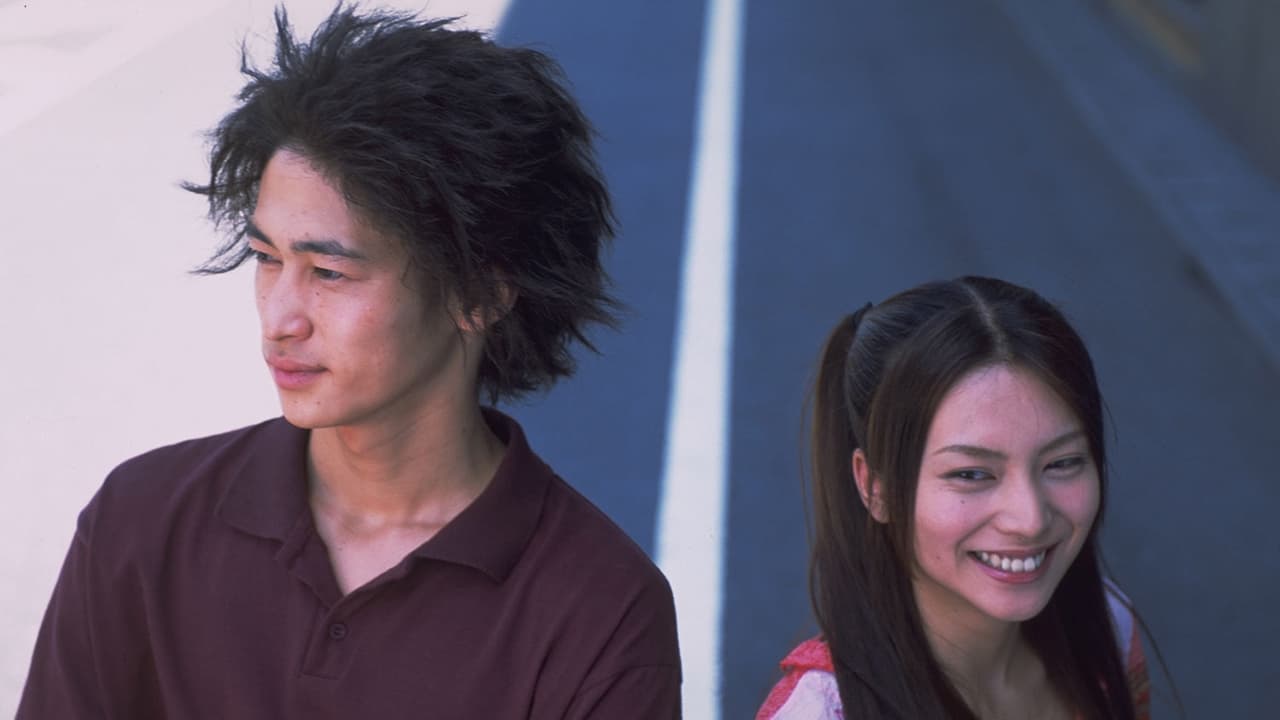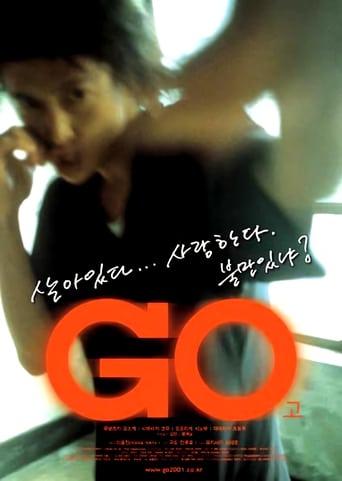



Crappy film
At first rather annoying in its heavy emphasis on reenactments, this movie ultimately proves fascinating, simply because the complicated, highly dramatic tale it tells still almost defies belief.
View MoreClose shines in drama with strong language, adult themes.
View MoreAmazing worth wacthing. So good. Biased but well made with many good points.
View MoreDirector: Yukisada Isao Duration: 122 MinutesAlmost two years ago in my War and Memory in Japanese Film Class I watched a film called Merry Christmas, Mr. Lawrence by the controversial film director Oshima Nagisa. One memorable scene in this film, amongst many others, is the cruelty displayed played by Sgt. Hara, Beat Takeshi, towards an imprisoned soldier named "Kanemoto." However, this is not the soldier's real name. He, like thousands of other Korean men, was forced to adopt Japanese names, because of the difficulty for the Japanese to pronounce Korean names, and serve in the Japanese military. Of course, this character comes to a pretty brutal end. Having to write a paper comparing one of the films in the class with another, I decided to compare how the Other is represented in Merry Christmas, Mr. Lawrence and Yukisada Isao's Go and let me say that it was indeed an eye-opening experience.Sugihara seems like a normal enough Japanese high school kid. He goes to class, plays basketball, reads books that his friends lend, etc. However, there is something different about Sugihara: he is not Japanese, but Korean, and not South Korean, but North Korean. Attending North Korean school until the time he enters high school. Sugihara spent his school days marching, learning the ideologies of Kim Il Sung and Kim Jong Il, and participating in classes devoted to self-criticism, which basically consisted of the teacher Mr. Kim beating students who broke the rule of speaking Japanese in school, but after he gets caught by the police after he and his friend Tawake and Wonsu attempt the Super Great Chicken Run, Sugihara ran in front of a train without getting killed, his father changes the family's nationality to South Korean, and soon after Sugihara decides to attend a Japanese high school. However, things do not go easy for our hero.Being a Korean, although born and raised in Japan, Sugihara is bullied at his new school. However, unlike many who are bullied, Sugihara knows how to fight from studying boxing with his father and after a particular fight where he takes on the school's entire basketball team; he becomes the target of students who want to prove themselves as fighters. He defeats all of them quite easily. The ideas of race and nation never crossed Sugihara's mind until one night at a birthday party for his friend a girl named Sakurai shows considerable interest in him. As their relationship grows, the burden of revealing his Korean heritage begins to weigh heavily on Sugihara. However, he is afraid that revealing his background will destroy the precious relationship he has developed with Sakurai.When Iwai Shunji released Swallowtail Butterfly in 1996 considerable interest within Japan's film industry was placed on minorities in Japan and films such as Yamamoto Masashi's Junk Food were created. However, almost four decades before similar issues were taken up by Oshima Nagisa in Death by Hanging and Imamura Shohei' My Second Younger Brother and more recent films tackling the issue include Sai Yoichi's, of Korean stock himself, Blood and Bones. However, where most of these films are quite serious, Go is a quite enjoyable film filled with humor while not becoming too didactic as a social commentary. The first half of the film is truly a delight with Sugihara's unusual relationships with his parents and the growth of his affection for Sakurai. The second half of the film tries to be a bit heavier and it sometimes comes off as being a bit forced. However, Go is a valuable film in introducing viewers to one group of Japan's little known minorities.
View MoreFirst of all, I loved this movie--loved it. It is a great portrayal of how strict the laws are against "aliens" in Japan. Told from the point of view of a Japan-born Korean Sugihara, Sugihara endures torment and the possibility of lost love simply because he is a Japan-born Korean. It does not matter that he attends a Japanese school (so that he is able to attend University as Korean schools are not recognized by Japanese higher education), speaks fluent Japanese, and has never even been to Korea, he will never be recognized as a Japanese citizen and thus must have his "papers" on him at all time. Despite how fresh and innovative the topic of discriminated foreigners is portrayed in the film, the female characters are discriminated against just as much as any Japan-born Korean. To put it bluntly: all of the female characters--all of them--are idiots. Sugihara's mother, while providing some comedic relief, is stupidly naive. Sakurai's mother asks questions after they've already been answered and discussed in her presence--as though she is too dim to understand. A friend of Sugihara believes everything that she is told no matter how ridiculous. Patriarchal comments are made about women such as "She couldn't cook but she was really cute." Perhaps the most disappointing female character of all is Sakurai--the main female character of the film. Apparently, even in modern-day Japanese films, the female love interest has to be a neurotic--much like many American films'female love interests. She charms the audience not through her wit or intelligence, but through her peculiarities. This would almost suffice if there was not such a let down in knowing that her attraction to Sugihara stemmed from the fact that he beat people up. A woman impressed by male strength--how original. Even in the end when Sakurai proves to think for herself after all, the beauty of her realization is upstaged by Sugihara's screaming at her. For such a brilliant, beautiful film with such clear-cut messages about being born into discrimination, there should have been at least one female character who was not discriminated into the category of being too dumb to identify with simply because she is a woman. A very big let-down for such a great work.
View MoreWhen I first saw this movie I was kind of turned off by it. It can be kind of confusing the first time around. But as with most good things it gets better with time and familiarity. The movie basically revolves around a Japanese born but fully north Korean teenager who struggles to find his place in society and come to terms with his tough father. As a Japanese-born Korean or "zainichi" he often feels alienated both by Korean and Japanese culture. The movie follows the trials and transformations in his life and his desire to find who he is and where he belongs. I think a lot of people who are the second or third generation of immigrant families will really get this movie. It's like being stuck between two worlds sometimes. But regardless of background people will be able to relate to the story (manic as it is). If you like say fight club, you will probably like this movie. There are quite a bit of action and fight sequences, a lot of introspection, and also romantic elements. The movie tends to segregate these elements to some extent which makes the film seem lop-sided but in the end everything balances nicely. This is probably one of my favourite movies, Japanese or otherwise.
View Morei saw this film at the berlin film festival where it was part of the 'panorama' showings (not in the actual competition itself). it was perhaps unhelpfully billed as a film about the 'taboo of relationships between japanese and koreans'. i wouldn't say that it was particularly about that at all - more like a teenager's struggle for identity.i found it to be an excellent film. funny, touching and well-played. it deserves some international success.
View More